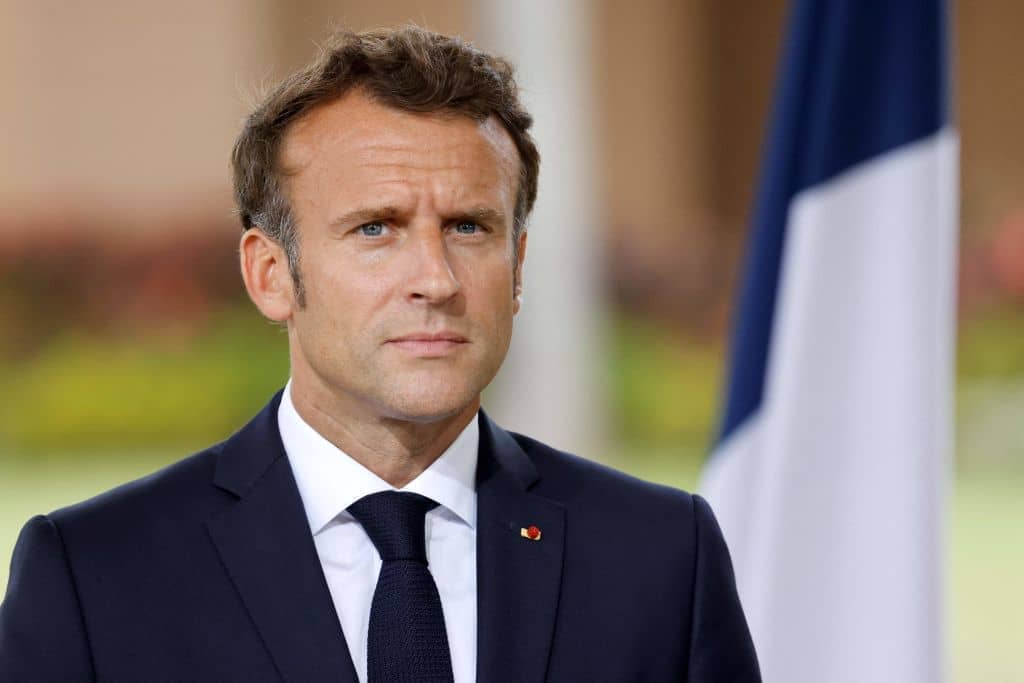It’s a platitude that France and Britain are rivals and have been for centuries. But, since the 1904 Entente Cordiale, the rivalry is more a question of competition than conflict. Always, in the darkest hour, each sided with the other, even if post-war they didn’t fully recognise the other’s contribution. Britain congratulated itself over the Dunkirk evacuation when in truth without French troops holding off the Germans, the ‘plucky’ armada would never have completed its mission; to this day the French believe that American troops were more numerous than British in the Normandy landings.
With the passing of the French war-time generation the postwar moral debt to Britain and residual goodwill were expunged. Franco-British relations became purely transactional with a host of pragmatic and deep agreements on everything from defence and diplomacy to security. Then two things happened: Brexit and Macron.
Since 2017, the French President’s aim has been to demonstrate that Britain cannot possibly thrive post-Brexit. He, more than any other French leader since De Gaulle, has placed obstacles in Britain’s path. Justifiably, in his eyes: he believes EU integration is the sole route to progress. His actions are driven by a legitimate fear that a successful Britain will give succour to thriving euroscepticism in a state whose collective consciousness remains firmly wedded to the nation-state.
Franco-British relations became purely transactional with a host of pragmatic agreements. Then Brexit and Macron happened
London, on the other hand, while not always behaving well, has sought to carry on reasonable transactional relations with Paris. Very large state contracts continue to be awarded to France on nuclear power stations and HS2, not to mention French companies increasing their control of UK railways, water, etc. But this is largely one-way traffic.
The latest manifestation is the French takeover of the British company OneWeb. Last week saw a considerable tranche of British satellite and communications capacity grabbed by French state-owned Eutelsat, a French state-owned company valued at £1.8 billion (compared to OneWeb’s £2.7 billion). Reporting in the British press has naively called the deal a merger. More comprehensive French press reports, including French stock trading sites, are clear that it is a take-over and that the British government will be a minority shareholder. The French finance ministry, which has a 20 per cent stake in Eutelsat via its state investment bank BPIFrance, reportedly insisted that OneWeb will become a ‘subsidiary’. It will oversee the deal to ensure that French interests are protected and that the British golden share will not apply to Eutelsat and ‘only to the subsidiary OneWeb’.
OneWeb is a world leader in the low-orbit satellite constellation race key to worldwide broadband coverage from space – its main larger competitor is Elon Musk’s Starlink. The British company is way ahead of its French-European soon-to-be partner with 428 satellites in orbit (compared to Eutelsat’s 35) and due to complete its constellation at the end of this year against the EU’s 2027 date. OneWeb is expected to build the British rival to the EU’s Galileo GPS system, from which Britain has been excluded post-Brexit.
The company’s importance to the UK is reflected in Britain thus far having a veto over any OneWeb commercial links that could be detrimental to its ‘Five Eyes’ intelligence partnerships with Canada, Australia, New Zealand and US. It is difficult to see how the British and French-European systems can integrate with these guarantees in place. One side will have to cede. Back in May 2021 after the French company first took a 24 per cent stake in OneWeb, the French EU Internal Market Commissioner, Thierry Breton said the two systems were incompatible and that OneWeb would be denied access to EU tenders.
But President Macron has other ideas. He announced earlier this year as President of the EU Council that the EU must become a major satellite and space power. OneWeb is a quick fix for that. Thierry Breton has gone remarkably silent. It should be recalled that Breton led the EU fight against the Oxford Astra-Zeneca vaccine in the wake of Macron trashing it as ‘quasi-ineffective’.
OneWeb’s management will struggle to retain any of the British government guarantees (an HQ in UK, a golden share, Five Eyes protection) if it wants access to the EU. Within a few years, any control of this highly strategic satellite business will have been whittled away, just as in the case of the other great British satellite company Inmarsat, currently being taken over by US rival Viasat. There really isn’t any need to ask if a British company could ever do the same in France, even without President Macron.







Comments